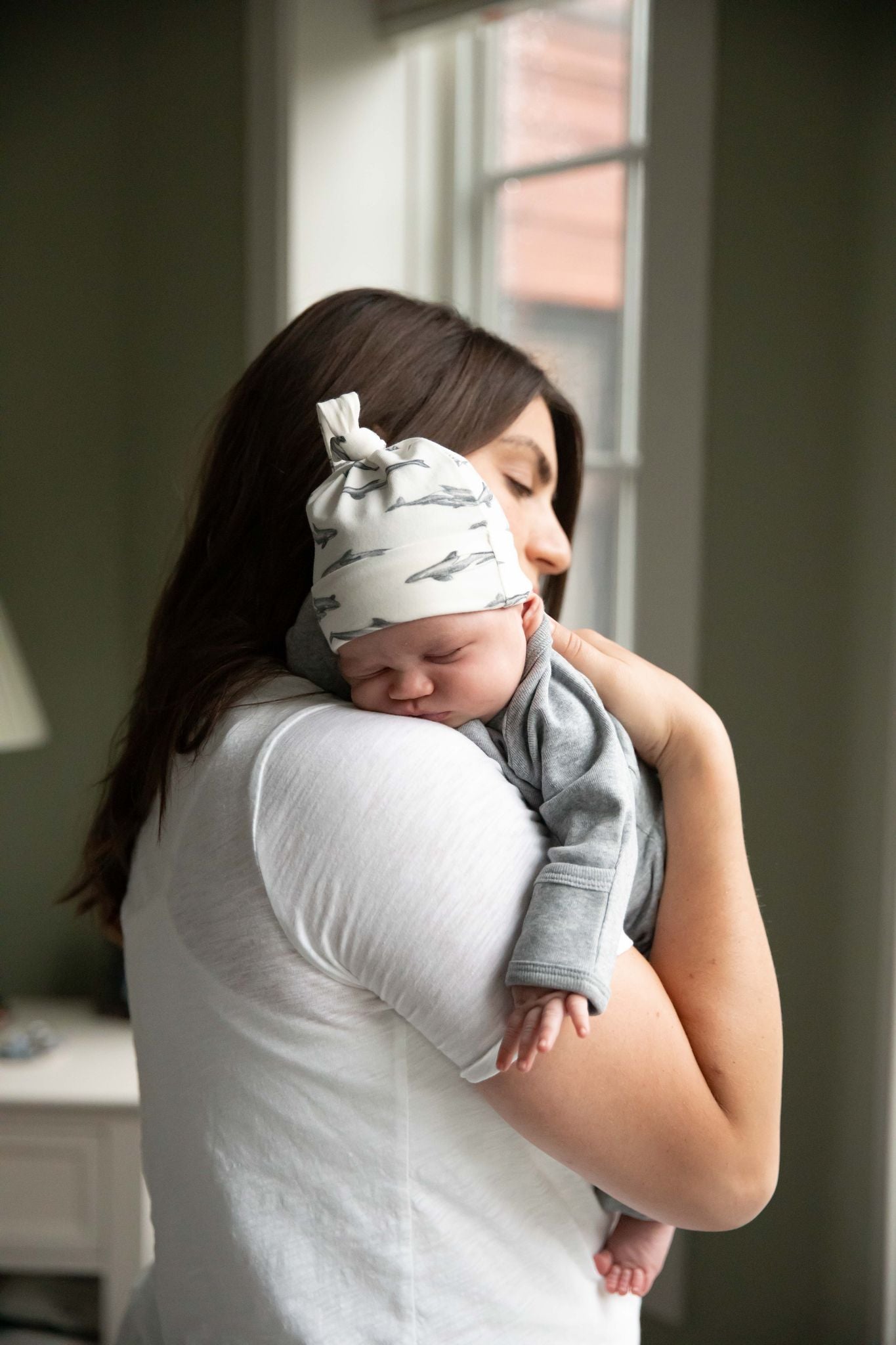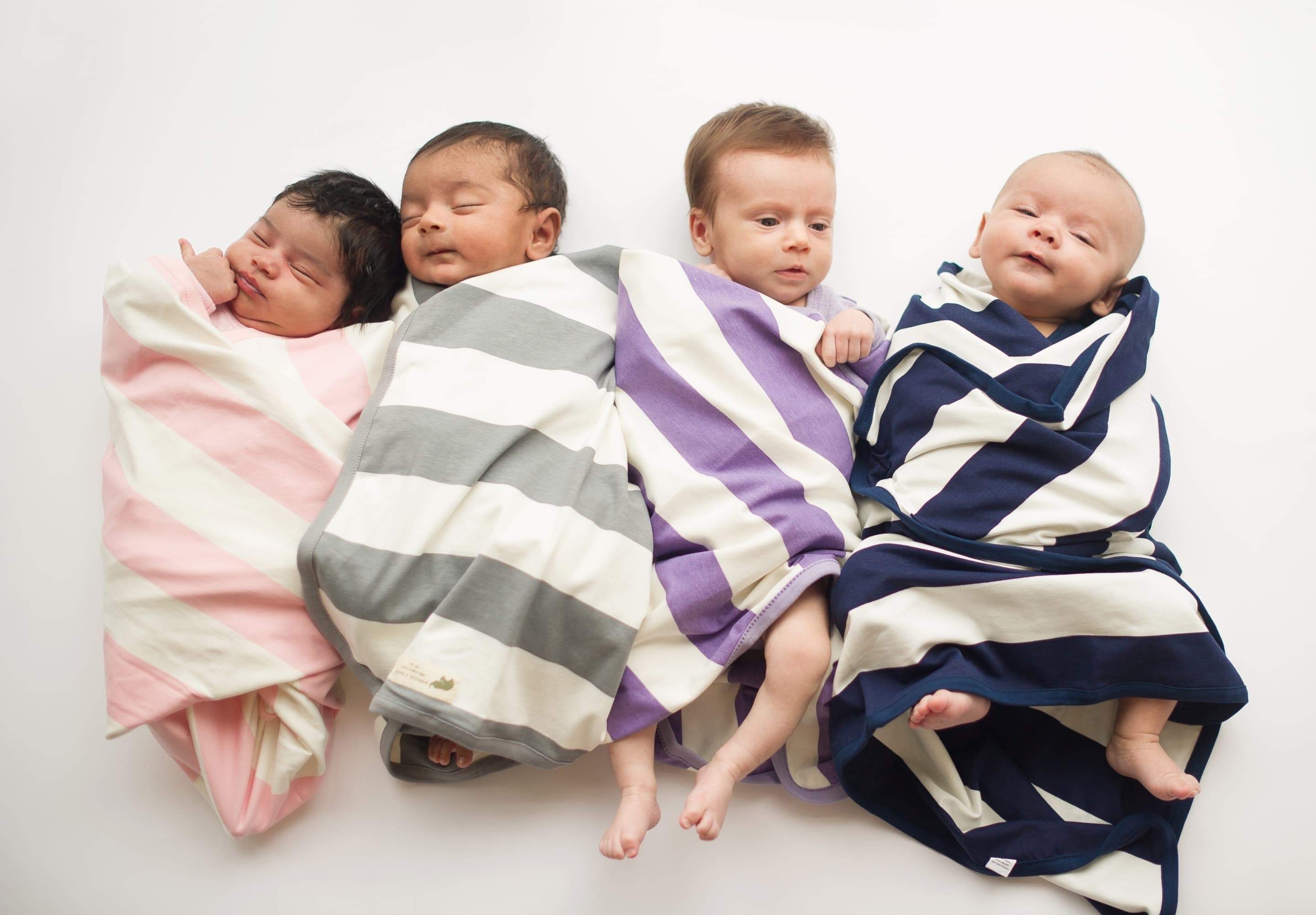How to Play with a Newborn

As cute as your newborn baby is in their first few months, it may seem like there’s not much they really do outside their normal routine of eating, sleeping, and…well, you know.
However, even feeding time and countless diaper changes give your child the opportunity to observe the world around them and make significant strides in physical and cognitive development.
And what’s one of the best ways to foster it? Playtime. Playtime is an instrumental part of your baby’s developmental milestones.
While playing with your child this early in life will look different than a backyard game of catch, there are still ample ways to engage your newborn in play. Keep these newborn play ideas and methods up your sleeve, and your baby will go from tummy time to peek-a-boo to patty-cake in a flash.
#1 Tactile Play
Parents know from the first hug with their newborn that touch is an extremely engaging sense.
For newborn babies, it’s one of their primary means of learning and discovery (not to mention a core communication channel between parent and child).1
When engaging your little one in tactile play, texture is the magic word. Tummy time is a wonderful avenue for introducing your newborn baby to all-new textures. Try out different baby blankets and playmats in skin-safe materials.
Our Wimmer-Ferguson Crawl and Discover Mat features an entertaining explosion of tactile play with hidden crinkle paper and other fun textures.
Water is another fantastic method to deepen your baby’s tactile sense. So long as you pair the activity with careful supervision, you can test out a water play mat during tummy time or gently let your baby kick their feet under shallow, lukewarm water. This form of touch-based sensory play is a gentle, low-risk way to nudge your baby toward enriching first-time experiences.
#2 Visual Play
From the second they’re born, your baby’s eyesight develops rapidly. Stimulating their sight offers fun new experiences and supports:2
- Healthy vision
- Cognition
- Hand-eye coordination
Sometimes your child’s own reflection is their best playmate. Have your baby gaze into a baby-safe (read: shatter-proof) mirror; parents can even join in, too! They’ll likely be captivated by their own image, all while learning:3
- How to develop self-awareness
- Track movements
- Learn how to focus and train their eyes
Peek-a-boo is a classic example of visual play that’s suited for babies of every age. In the first two months, it’s excellent for visual stimulation, recognizing eye contact, and parental love. However, it’s only once they reach their third month that you’ll notice your baby grinning and gurgling back at you in an (adorable) response.4
#3 Auditory Play
For infants, music is like brain fuel. Babies’ brains have heightened neural reactions to music. Over time, this improves their ability to recognize and predict auditory patterns—two crucial components of learning music and speech (more on this later).5
Try tapping into their aural sense with the following:
- Lullabies – A playful and practical way to listen to music with your newborn. When putting them down for bed, choose a soothing tune to play aloud. Or, better yet, sing it yourself—to not only add some fun to bedtime but also to lull the little one to sleep. If you stick to the same song every time, its familiar rhythm (especially paired with their caregiver’s voice) can counteract any of that classic infant fussiness.
- Nursery rhymes – Perfect for less drowsy moments, dance along to the tune for your baby to watch, or gently move their tiny limbs through the musical motions yourself. Those with choreographed dances, like “I’m A Little Teapot” or “The Itsy Bitsy Spider,” might catch your baby’s eye a little extra, too.
When Can You Start Playing with a Newborn?
From the moment they enter the world, your baby’s growing mind is dedicated to their orientation to their environment and to learning their abilities within it. You’ll notice them quickly becoming familiar with your voice, then moving their head when they see or hear you, and little by little—usually by the third month—they’ll be cooing and smiling and reaching their hands out toward you.6
In these first 3 months, your baby’s cognitive capacity is expanding rapidly. Play is a healthy and beneficial practice to incorporate as soon as you’re back home and snuggling with your newborn. As a parent initiating play with your child, you’re communicating to their little mind that their caretakers are paying attention to them and are reliable sources of sustenance, comfort, and assurance.7
Inspire Playful Moments with Monica + Andy
Your baby’s first months of life can be special, not to mention thrilling, time for you, your family, and your newest little addition. With fresh experiences at every corner, light up your little one’s inner and outer world with Monica + Andy.
Whether you’re looking for sensory-fun play mats, nursery must haves, your baby’s first toys, or snuggly soft friends, we curate a selection of playthings, parent gear, and bedroom essentials for every age or stage, from cradle to crayons. Make your newborn’s surroundings as special as playtime by shopping our newest arrivals today.
Sources:
- University of Washington. A ‘touching sight’: How babies’ brains process touch builds foundations for learning. https://www.washington.edu/news/2018/01/16/a-touching-sight-how-babies-brains-process-touch-builds-foundations-for-learning/
- American Optometric Association. Infant Vision: Birth to 24 Months of Age. https://www.aoa.org/healthy-eyes/eye-health-for-life/infant-vision?sso=y
- First Things First. Reflecting on babies and mirror play. https://www.firstthingsfirst.org/first-things/reflecting-on-babies-and-mirror-play/
- The Genius of Play. Peek-A-Boo. https://thegeniusofplay.org/genius/play-ideas-tips/play-ideas/peek-a-boo.aspx#.Y6yaM-zMJhE
- Institute of Learning and Brain Sciences. Musical intervention enhances infants’ neural processing of temporal structure in music and speech. https://www.pnas.org/doi/pdf/10.1073/pnas.1603984113
- Cleveland Clinic. Well-Baby Care Visits & Developmental Milestones (Age 0-12m). https://my.clevelandclinic.org/health/articles/22063-baby-development-milestones-safety
- Childhood Education. How Much Do We Know about the Importance of Play in Child Development? https://www.researchgate.net/publication/254295737_Review_of_Research_How_Much_Do_We_Know_about_the_Importance_of_Play_in_Child_Development














